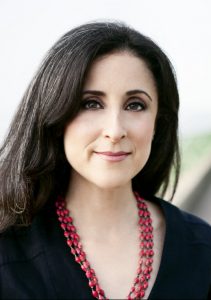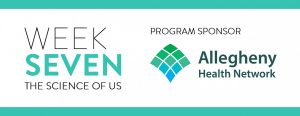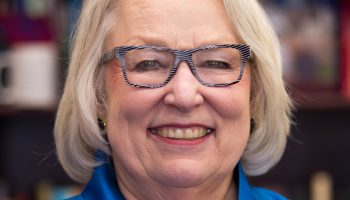
In 2009, Sheri Fink published her investigative piece “The Deadly Choices at Memorial” in the New York Times Magazine. The article, which distilled more than two years of reporting, detailed the aftermath of Hurricane Katrina at the New Orleans Memorial Medical Center in 2005. It won a 2010 Pulitzer Prize and a National Magazine Award for investigative reporting.
She later transformed the 13,000-word article into a nearly 600-page book, Five Days at Memorial: Life and Death in a Storm-Ravaged Hospital, which she presented at the Institution as a Chautauqua Literary and Scientific Circle author in 2014. It won a PEN/John Kenneth Galbraith Award and National Book Critics Circle Award for General Nonfiction.
As of April, Fink is once again being honored for her work recording history in hospital halls. This time, for a story with a global impact — the COVID-19 pandemic.
“Dr. Fink is able to look inside such a crisis to understand both the science and the humanity — from the gut-wrenching decisions of doctors and nurses at overcrowded hospitals, to the impact on individual families amid continued political debates,” said Vice President and Emily and Richard Smucker Chair for Education Matt Ewalt.
Fink will deliver her lecture, “Inside the Science of and Response to COVID-19” at 10:45 a.m. EDT on Tuesday, Aug. 11, on the CHQ Assembly Video Platform, as part of the Week Seven Chautauqua Lecture Series theme, “The Science of Us.” In addition to her work as an award-winning author, Fink serves as an executive producer of the Netflix documentary television series “Pandemic: How to Prevent an Outbreak” and a correspondent at The New York Times.
Fink, and her New York Times colleague Mike Baker, won the April Sidney Award for “It’s Just Everywhere Already: How Delays in Testing Set Back the U.S. Coronavirus Response,” a critical early scoop that revealed how state and federal regulators stymied a flu surveillance lab in Washington State.
“There were people getting sick and we didn’t know about it,” Fink said in an interview with the Sidney Hillman Foundation. “There were researchers who were ready and willing to (test) very early on. It’s very, very sad that that capacity couldn’t have been used.”
Fink and Baker’s investigation began in late January, when the first confirmed United States case of coronavirus surfaced in the greater Seattle area. Helen Chu, assistant professor of medicine at the University of Washington, and her colleagues had already been collecting nasal swabs from people in the Puget Sound region as part of their ongoing flu surveillance project. To repurpose their testing to monitor the spread of the virus, Chu and her team needed the support of state and local officials. However, according to Fink, they were denied for weeks.
“I think the bottom line is that there wasn’t alacrity,” Fink told the Hillman Foundation. “There was this very dangerous virus and it was known many, many weeks before that it had two features that make scientists concerned: One, that it had the capacity to cause serious disease, and two, that it had the capacity to transmit effectively from person to person.”
In late February, Chu started testing the nasal swabs without government approval. The results established the coronavirus had been circulating in the community for at least six weeks. At that point, two people had already died.
“It’s very, very sad that that capacity couldn’t have been used,” Fink said in that interview. “Here was a system that actually existed that had hundreds and hundreds of samples from people who were symptomatic with flu-like symptoms, which looks a lot like coronavirus, and they were sitting on this and not testing because of these obstacles.”
The United States, which accounts for less than 5% of the world population, currently leads all other countries in global coronavirus infections and deaths. The nation represents more than 22% of global coronavirus deaths and more than 25% of infections as of Wednesday, Aug. 5, according to Johns Hopkins University data.
“I think that’s very representative of this larger failure to roll out and significantly increase the capacity to test in this country, both in the private sector and in our public health labs,” Fink told the Hillman Foundation.
Fink and Baker’s story, one of the first of many scoops that revealed aspects of the federal government’s mismanagement of the COVID-19 pandemic, exposed the beginning of a broader pattern still coming to light. According to Ewalt, that insight makes Fink a quintessential contributor to the Week Seven conversation. 
“‘The Science of Us’ during the COVID-19 crisis, of what we know and don’t know, of what we choose to believe and how we respond, was clearly a topic we needed to explore this summer,” Ewalt said.
This program is made possible by the Week Seven “Program Sponsor” Allegheny Health Network and the Donald West King and Francis Lila King Lectureship.




